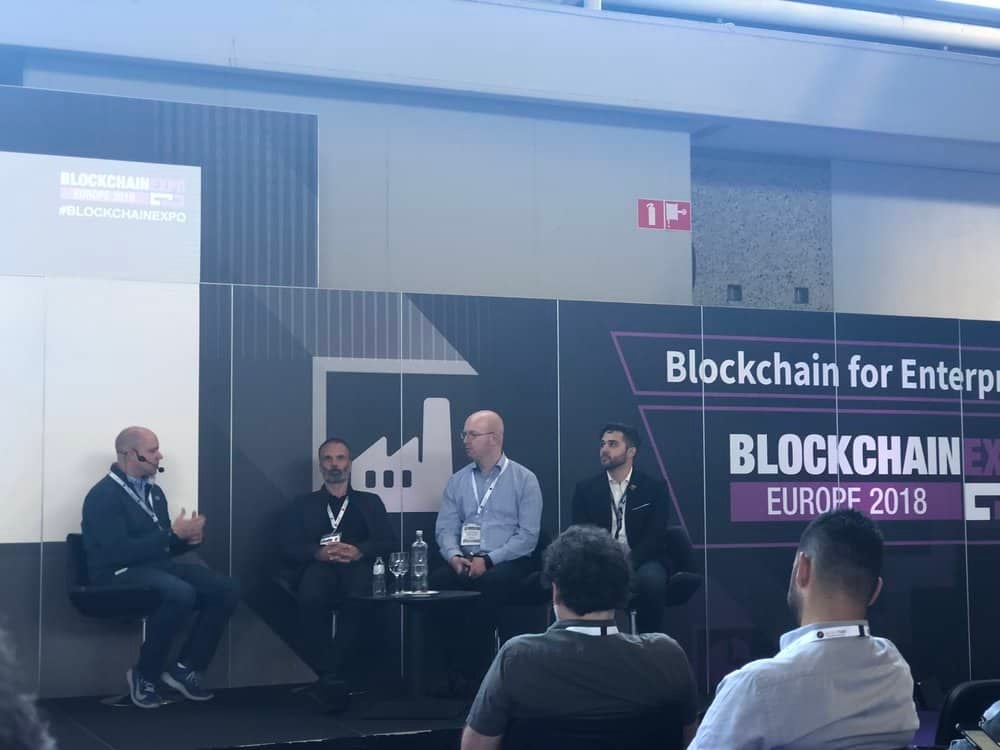
At the Blockchain Expo 2018 held at Amsterdam this week, a panel got together to discuss the impact of blockchain in logistics and transportation. Moderating the panel was Craig Fuller, the Managing Director of Blockchain in Transport Alliance (BiTA), with participants including Simon Kiilerich Vedel, the Digital Product Manager at A.P. Moller – Maersk, Dr. Michael Kuperberg, the Lead Blockchain Architect at Deutsche Bahn AG, and Logan Ryan Golema, CTO at Hercules SEZC.
Fuller initiated the conversation by explaining the relevance of transportation in the supply chain, and brought to light the fact that in the Western Hemisphere, 44% of employees in the product business are associated with supply chain and transportation. Nudging the topic of cryptocurrency into the discussion, Fuller brought in the idea of “crypto as a tradable currency” and its ability to proliferate the transportation industry over the next couple of years.
“I think from a purely corporate perspective, not much is going on,” said Kiilerich Vedel. “It is fair to say that Maersk is a fairly conservative company. One of our core values is constant care, so that goes into making sure we don’t mess up things for our business. And I think a lot of ideas concern about the maturity or the lack of maturity for the whole infrastructure around crypto. Crypto as such is interesting, and I think there are a lot of opportunities and possibilities for a company like Maersk, but for now, it is not something that we are exploring.”
Kiilerich Vedel continued with mentioning the need for established incumbents in the industry to have a startup-like approach to blockchain and the necessity to gauge opportunities with the risks involved on an equal footing.
Kuperberg stepped in, explaining the hassles of using cryptocurrency over defined FIAT currencies. “The problem with fluid tradable cryptocurrency system is that it fluctuates with the normal FIAT currency, and so if you are doing real business, you are at risk and could lose money just because the exchange is different from what you planned for,” he said. “However if you look at the essence, it could easily mean that we have a token that is not really tradable but is widely accepted.”
Kuperberg went ahead by providing a use case for the Deutsche Bahn to work on by utilizing blockchain – the public transport ticketing system. In Germany, commuters are given the option of buying a day ticket with an option of taking up the tram, S-Bahn, U-Bahn, or the bus to reach their destinations.
As different transportation providers run each of these networks, it gets difficult for splitting incomes as these tickets do not record which transportation services were used more often than the others. Deutsche Bahn’s cross-collaboration with IBM on the Hyperledger technology addresses this problem to provide a fair distribution of income, solving a real need through blockchain.
On its end Maersk has been collaborating with IBM on a blockchain pilot over a couple of years, trying to reduce some of the barriers to global trade. The shipping major did a field study of how containers with avocado from Kenya were shipped to Europe by micro-monitoring the container movement. The observations gleaned from the study were funneled into the collaborative effort with IBM, which could help fix pain points.
“Along the way, we also realized that there are things that we didn’t factor at the beginning – about growing a network, having a network effect, getting the right participants on board – something that is important for us,” said Kiilerich Vedel. “Another thing was to get regulators on board. What we have done so far is that we have a solution in production – it is an API structure that enables all the different participants to integrate their data into a joint data platform [allowing them] access to the data that they submit or somebody else submits within that trade lane.”
Kuperberg contended that getting data agreements is essential to the system and he felt it would be complicated in the transportation industry. “The moment you share the data, you also share the data definition, which becomes quite challenging especially if your network is growing. The moment you want to migrate, then it is the usual integration problem, and you need to migrate data in the larger scale,” he said.
After largely allowing the conversation to run its course, Fuller interjected by asking Kuperberg if they had worked with Maersk before, to which Kuperberg explained how Deutsche Bahn was different as a company from Maersk and that they probably would not be working together as they do not cut parallels or compete against each other.
As the conversation concluded amidst the discussion about companies and their foray into blockchain, one thing did stand out in common – that blockchain as a technology has captivated the collective interests of the transportation ecosystem and that it is here to stay for good.
Stay up-to-date with the latest commentary and insights on FreightTech and the impact to the markets by subscribing.










